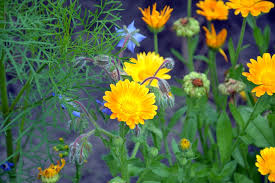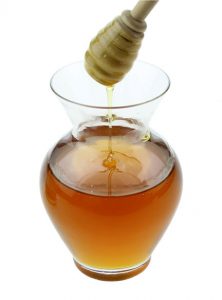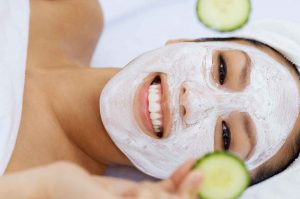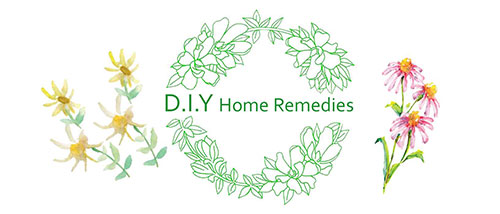Home-Remedies
 Are you interested in using home remedies? You are probably already using some simple home-remedies without really thinking of them as remedies.The goal of this site is to share knowledge about home and herbal remedies and hopefully to inspire some small changes in the process.
Are you interested in using home remedies? You are probably already using some simple home-remedies without really thinking of them as remedies.The goal of this site is to share knowledge about home and herbal remedies and hopefully to inspire some small changes in the process.
Have a look in your kitchen cupboard. Chances are you already have several very useful ingredients. Think Apple Cider Vinegar, ginger, garlic and honey. The beauty of home remedies is they can be simple, cost-effective and easy to make. Whatever your circumstances, every household should have some go-to home remedies!
Your Herbal First-Aid Kit
It’s useful to consider home remedies in terms of a first aid kit. What illnesses or aches and pains do you see (or suffer from) on a regular basis. This is a great place to start planning your own ‘herbal first-aid kit’.
Do you have young children or teenagers at home? Then you’re likely to need soothing and calming teas and essential oils such as lemon balm or chamomile and relaxing lavender essential oil.
 My grandchildren scrape their knees on a daily basis. I have a simple calendula ointment on hand to help soothe and protect against infection.
My grandchildren scrape their knees on a daily basis. I have a simple calendula ointment on hand to help soothe and protect against infection.
If your household has hard working, stressed individuals, you’ll most likely benefit from Epsom salts to relax you after a hard day’s work and liquorice tea to protect your body against the effects of stress.
 Once you’ve had a think about what you might see on a regular basis, consider the season. In winter having immune boosting remedies such as garlic, honey, Echinacea, elderberry and thyme on hand to help deal with any coughs and colds.
Once you’ve had a think about what you might see on a regular basis, consider the season. In winter having immune boosting remedies such as garlic, honey, Echinacea, elderberry and thyme on hand to help deal with any coughs and colds.
In spring, hay fever tends to rear its ugly head. Nettle tea and Eyebright are excellent remedies to reduce the symptoms of hayfever.
Skincare
 If you like to take care of your skin, some simple external home remedies are in order. Skincare can be as simple as cucumber slices for tired eyes or oatmeal in a bath to sooth itchy skin.
If you like to take care of your skin, some simple external home remedies are in order. Skincare can be as simple as cucumber slices for tired eyes or oatmeal in a bath to sooth itchy skin.
If you’re more adventurous you can make your own Shea Butter and Honey anti-wrinkle cream or maybe even some coconut oil hand cream.
Your skin is more than just a covering for your body. It’s semi-permeable which means that whatever you put on your skin may be absorbed into your body.
A good rule of thumb is that if you wouldn’t eat it, don’t put it on your skin. Your skin is also a major organ of detoxification so you really need to look after it!
Who Can Use Home-Remedies?
A simple answer to the question “who can use home-remedies” is EVERYONE! Well, mostly everyone. There is no one size fits all and we all come with our unique set of health ‘quirks’.
Herbal and home-remedies are not 100% risk free and if you have any pre-existing illnesses or are on any prescribed medications, it’s advisable to consult your doctor, local naturopath or herbalist prior to using any home remedies.
That said, the use of herbal and home-remedies is as old as civilization and have been around much longer than modern medicine. Many ingredients and techniques used in making home remedies have been around for 1000’s of years and are proven and safe.
Herbal remedies can be as easy or as difficult to make as you like and there is something for everyone’s level of skill. Home remedies fall into 2 broad categories, those you take internally, such as teas and tinctures and those you use externally such as creams, lotions and poultices. Therapeutic grade essential oils can be used topically, aromatically and internally.
Wild Harvesting
 If you have access to clean and green outdoor spaces, wild harvesting your own herbs can be deeply satisfying. Getting outside in green spaces is so healing and costs nothing, what a great home remedy.
If you have access to clean and green outdoor spaces, wild harvesting your own herbs can be deeply satisfying. Getting outside in green spaces is so healing and costs nothing, what a great home remedy.
It’s prudent to exercise caution though if you do decide to harvest your own herbs from the wild.
This is for several reasons, not least because of the possibility of mis-identification, but also as they may have come into contact with pesticides and herbicides.
Never harvest unless you are 100%sure of the plant’s identity and avoid verges and areas close to farmlands that may be sprayed with herbicides and pesticides, as a general rule of thumb.
The Bottom Line
Small changes can have a big impact on your health. When you get a minute, head on into your kitchen and see what goodies you can use in your DIY herbal first aid kit. If something works well for you, remember to share it, knowledge is power. Lastly, 2 of the most cost-effective home remedies are quality sleep and lots of laughter, you cannot overdose on these remedies.
From the team at DIY home remedy
